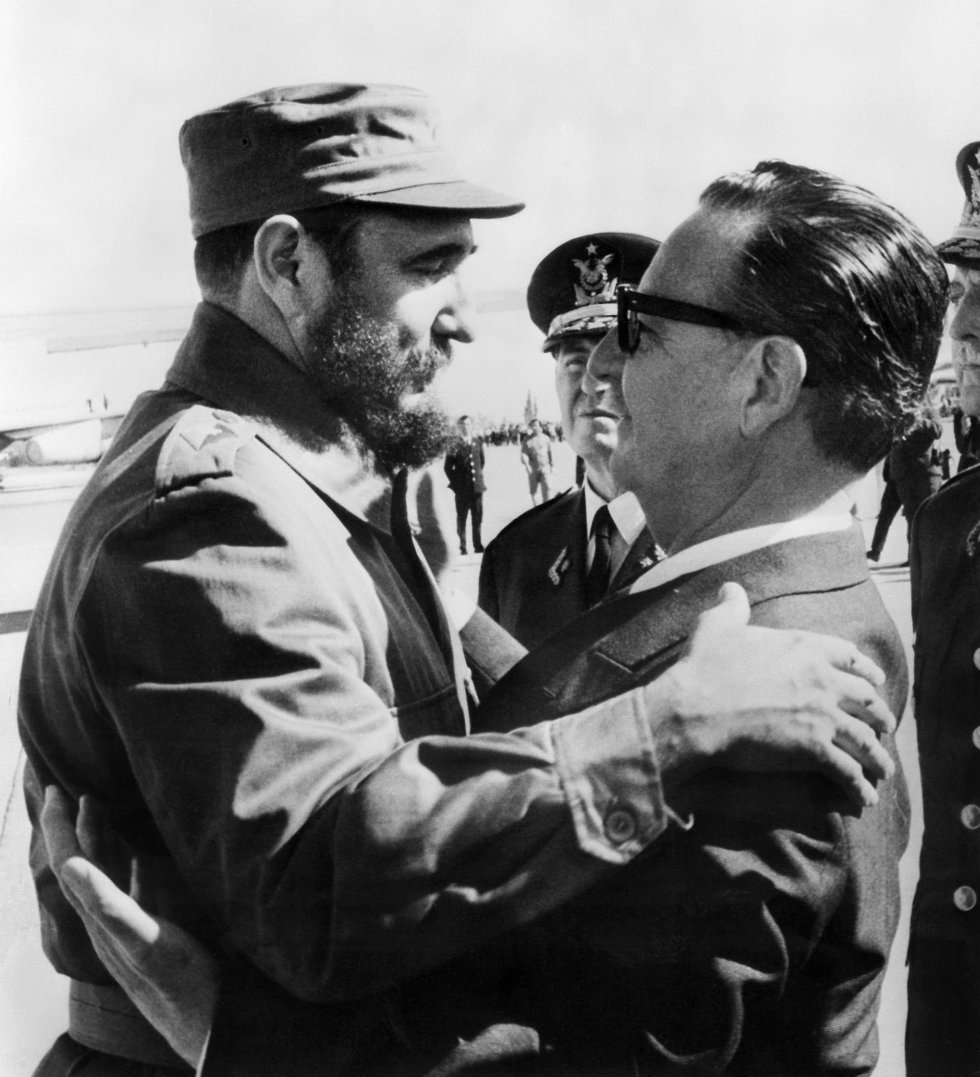Communism is not dead
- Gerardo E. Martínez-Solanas
-
 Topic Author
Topic Author
- Offline
- Moderator
-

- Posts: 803
- Thanks: 73
Communism is not dead
4 years 3 months ago - 3 years 10 months ago
Communism is a utopia prone to monumental failures every time it is put into practice, eventually leading to a cruel totalitarianism that has taken various forms, transforming itself into dictatorships that even end up adulterating the basic principles of Marxism.
There are many degrees of Socialism, and Communism is the most extreme. In general, no matter how moderate and democratic is the Socialism practiced in a given country, it has a Marxist root that implies a greater centralization of power in a State that is obliged to intervene actively in the sphere of civil society.
As the State is given greater prominence in the efforts of civil society, the government is effectively taking a step towards totalitarianism. This unfortunate trend suffers from many aberrations that can lead to disruptive tactics provoking a revolutionary atmosphere aiming at some sort of utopian Communism.
Although Communism or some sort of Marxism-Leninism collapsed in Eastern Europe and the Soviet Union over 30 years ago, its global influence continues to threaten and oppress peoples in many countries and regions.
The brand new "revolutionaries" of the moment continue to proclaim their intention to transform the world as an answer to corruption and greed, promising to eliminate conflict between the classes and stop "the exploitation of one large part of society by a small capitalist elite". In theory, it aims to create a utopian paradise on earth. Exactly the same arguments that led to the enthronement of Stalin, Mao, Pol Pot, Castro and Chávez, among other equally cruel characters.
When Karl Marx and Friedrich Engels published The Communist Manifesto in 1848 they proclaimed their will of "liberating" the working class: "The history of all hitherto existing societies is the history of class struggles", and it could be resolved by abolishing the ownership of private property and giving whole control to a central government.
In this process, the Communists under Lenin and Stalin would eventually supress what they view as a major threat to their centralized power: religion and the church. Marx had called religion "the opium of the people" in his introduction to "A contribution to the Critique of Hegel's Philosophy of Right", i.e. a tool used by capitalists to suppress and deceive the working class. Therefore, Lenin endorsed this motto and eventually stated clearly his intent toward the church: "We demand complete disestablishment of the Church so as to be able to combat the religious fog with purely ideological and solely ideological weapons".
When the Soviet Union occupied Romania in 1944 they swept away all democratic opposition. Many were killed and many more were exiled. Richard Wurmbrand was a Romanian evangelical Christian minister of Jewish descent. In 1948, having become a Christian 10 years before, he publicly said Communism and Christianity were not compatible. As a result, he experienced imprisonment and torture by the then Communist regime of Romania, on account of his "counterrevolutionary" beliefs. After serving a total of fourteen years, he was ransomed for $10,000 by his Western Europe evangelical flock and went into exile. After arriving in the West, he boldly spoke out about Communism's effects on ethical values and materialism:
"I cannot agree with what even well-known evangelists and mission directors are saying, that the principal foe today is the materialism of the West. Today the principal enemy is Communism. Capitalism might have its evils, but it gives to the church and others the liberty to work at the betterment of society. Communism ... uproots religion and destroys its moral values".
This history has repeated once and again up to Fidel Castro, Allende, Chavez, Maduro, etc. But do not think this revolutionary spirit is contained in countries like China, Vietnam, Laos, Eritrea, Venezuela or Cuba. Such a disastrous ideology has planted its seeds and remains influential in several other nations, including India, Nepal, Chile and Argentina, among many others.
They use other names as cover-ups for their true goals, such as "progressives" (in Latin America and even the United States) or Naxalites (in India and Nepal), claiming to represent the poor and promote "social justice". In fact, they promote populism as an instrument to get to power. Communism is not dead, no matter what name they are using nowadays.
As Communist nations, such as China, strengthen and expand their global influence, all of them are rife with corruption, greed and gross social injustice. They are simply totalitarian dictatorships in which the power elite no longer sticks to any ideology but to a strategy that allows them to perpetuate themselves at the helm.
There are many degrees of Socialism, and Communism is the most extreme. In general, no matter how moderate and democratic is the Socialism practiced in a given country, it has a Marxist root that implies a greater centralization of power in a State that is obliged to intervene actively in the sphere of civil society.
As the State is given greater prominence in the efforts of civil society, the government is effectively taking a step towards totalitarianism. This unfortunate trend suffers from many aberrations that can lead to disruptive tactics provoking a revolutionary atmosphere aiming at some sort of utopian Communism.
Although Communism or some sort of Marxism-Leninism collapsed in Eastern Europe and the Soviet Union over 30 years ago, its global influence continues to threaten and oppress peoples in many countries and regions.
The brand new "revolutionaries" of the moment continue to proclaim their intention to transform the world as an answer to corruption and greed, promising to eliminate conflict between the classes and stop "the exploitation of one large part of society by a small capitalist elite". In theory, it aims to create a utopian paradise on earth. Exactly the same arguments that led to the enthronement of Stalin, Mao, Pol Pot, Castro and Chávez, among other equally cruel characters.
When Karl Marx and Friedrich Engels published The Communist Manifesto in 1848 they proclaimed their will of "liberating" the working class: "The history of all hitherto existing societies is the history of class struggles", and it could be resolved by abolishing the ownership of private property and giving whole control to a central government.
In this process, the Communists under Lenin and Stalin would eventually supress what they view as a major threat to their centralized power: religion and the church. Marx had called religion "the opium of the people" in his introduction to "A contribution to the Critique of Hegel's Philosophy of Right", i.e. a tool used by capitalists to suppress and deceive the working class. Therefore, Lenin endorsed this motto and eventually stated clearly his intent toward the church: "We demand complete disestablishment of the Church so as to be able to combat the religious fog with purely ideological and solely ideological weapons".
When the Soviet Union occupied Romania in 1944 they swept away all democratic opposition. Many were killed and many more were exiled. Richard Wurmbrand was a Romanian evangelical Christian minister of Jewish descent. In 1948, having become a Christian 10 years before, he publicly said Communism and Christianity were not compatible. As a result, he experienced imprisonment and torture by the then Communist regime of Romania, on account of his "counterrevolutionary" beliefs. After serving a total of fourteen years, he was ransomed for $10,000 by his Western Europe evangelical flock and went into exile. After arriving in the West, he boldly spoke out about Communism's effects on ethical values and materialism:
"I cannot agree with what even well-known evangelists and mission directors are saying, that the principal foe today is the materialism of the West. Today the principal enemy is Communism. Capitalism might have its evils, but it gives to the church and others the liberty to work at the betterment of society. Communism ... uproots religion and destroys its moral values".
This history has repeated once and again up to Fidel Castro, Allende, Chavez, Maduro, etc. But do not think this revolutionary spirit is contained in countries like China, Vietnam, Laos, Eritrea, Venezuela or Cuba. Such a disastrous ideology has planted its seeds and remains influential in several other nations, including India, Nepal, Chile and Argentina, among many others.
They use other names as cover-ups for their true goals, such as "progressives" (in Latin America and even the United States) or Naxalites (in India and Nepal), claiming to represent the poor and promote "social justice". In fact, they promote populism as an instrument to get to power. Communism is not dead, no matter what name they are using nowadays.
As Communist nations, such as China, strengthen and expand their global influence, all of them are rife with corruption, greed and gross social injustice. They are simply totalitarian dictatorships in which the power elite no longer sticks to any ideology but to a strategy that allows them to perpetuate themselves at the helm.
Last edit: 3 years 10 months ago by Gerardo E. Martínez-Solanas.
Please Log in to join the conversation.
Moderators: Miguel Saludes, Abelardo Pérez García, Oílda del Castillo, Ricardo Puerta, Antonio Llaca, Efraín Infante, Pedro S. Campos, Héctor Caraballo
Time to create page: 0.283 seconds

